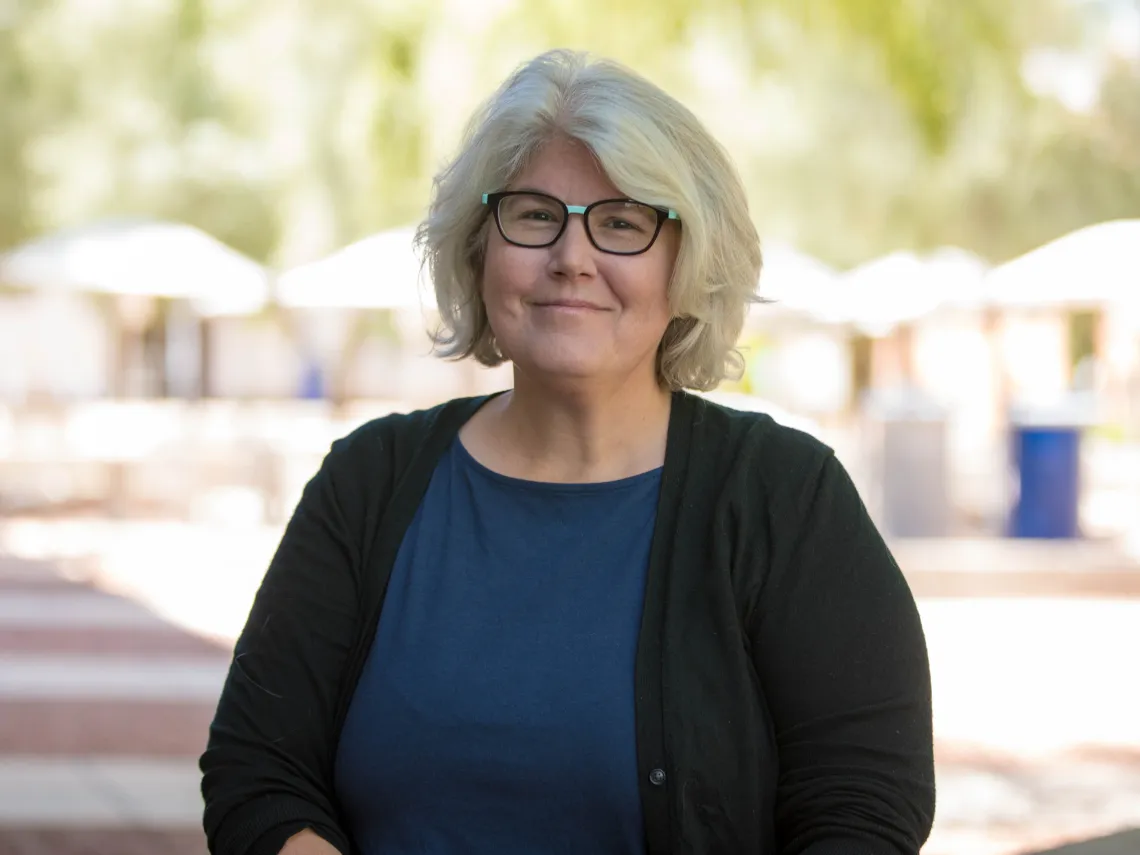COVID Chronicles: Research in the Time of COVID-19

Beth Plummer
by Beth Plummer, Susan C. Karant-Nunn Chair in Reformation and Early Modern European History
On a beautiful, sunny morning in late May, after I had finished my final grades for the spring semester, I thought about my research plans during the summer break. Despite already being in Germany, I know that research in its traditional form is not possible for the second summer in a row.
Few colleagues from around the world will come to the Duke August Library in Wolfenbüttel for their annual research sojourn this year. I will miss the many lost discussions over coffee hour in the library garden or during summer evenings sitting in one of the few, but long since beloved, local restaurants. As Germany still struggles to get the pandemic under control, the garden is empty, and those restaurants are only slowly reopening. The library itself has limited opening times, housing, and research space for the few scholars here.
While my colleagues and I all hope that in-person research and meetings will be possible again soon, we know that research and scholarship has changed and will continue to do so. Over the last year, I have taken part in webinars focused on how scholars can continue to be productive and exchange ideas during an ongoing public health crisis and shrinking funding availability. The creativity and efforts of so many individuals have ensured that such scholarly exchanges can continue. Numerous universities, research centers, and professional societies have also adopted social media sites and content sharing technology to hold meetings, record workshops, and facilitate discussion to support such contact.
Technology also has made research activity possible in ways that most of us never imagined. Some of these new scholarly tools have been in use long before this pandemic. We all regularly consult an increasing number of digitized articles and books available at our home institutions. Over the last decade, a growing number of archives and libraries with repositories of early modern manuscripts and printed books have begun digitizing their collections. The current circumstances have expanded these efforts and spurred on other digitization projects. In particular, archives are improving online finding aids and offering new digitization services.
Thus, research can continue, even if in a modified form. I now regularly order archival documents, early modern print books, and articles from a variety of archives and libraries. In the last month alone, I ordered archival documents produced by an abbess in Weissenfels in Saxon-Anhalt from the main state archives in Dresden and articles written by a professor at the Technical University of Dresden from Interlibrary Loan at the University of Arizona. All of this arrived quickly, allowing me to keep working and writing. Still, what I will be doing this summer is not what I had planned. Instead of beginning research on my next book, I will spend most of the summer at my desk editing my book manuscript in preparation for its publication with Oxford University Press.
What is missing are the unexpected moments of discovery that come from an unexpected discussion with someone during a conference or unplanned meeting in an archive or the accidental discovery in an archive or library that turns out to be pivotal to one’s research or thinking about a topic or problem. I wonder, for instance, what would I have learned if I could have traveled to Dresden to look at those documents in person and could have also ordered related documents just to see what was there. And what if I could have taken the opportunity of being in Dresden to visit with that professor in person to discuss our common research interests. That serendipity of research is what we all miss right now.
The ongoing challenges and obstacles faced doing research under these conditions often seem insurmountable, especially for many younger scholars. Nevertheless, we are all moving ahead, finding new ways to do research, and gradually emerging into a new normal that will, surely, bring back in-person visits to archives, libraries, and historical sites that we all enjoy so much.
##
This essay was part of the Spring/Summer 2021 Newsletter Desert Harvest, produced by the University of Arizona Division for Late Medieval and Reformation Studies.

